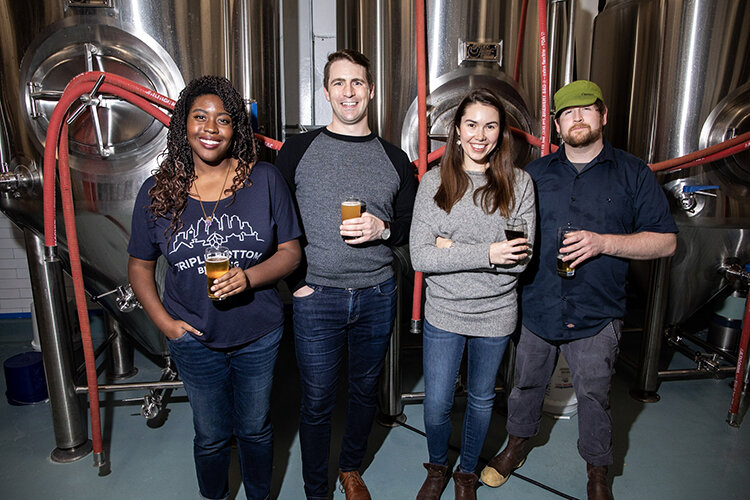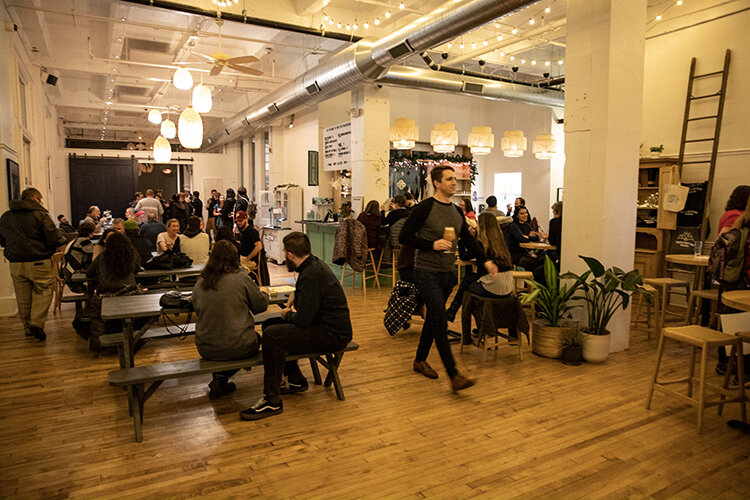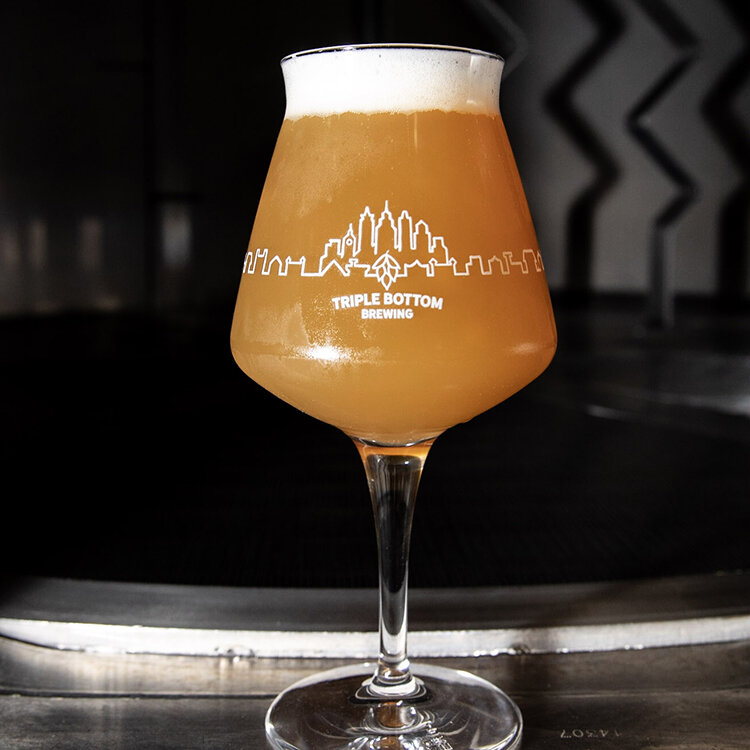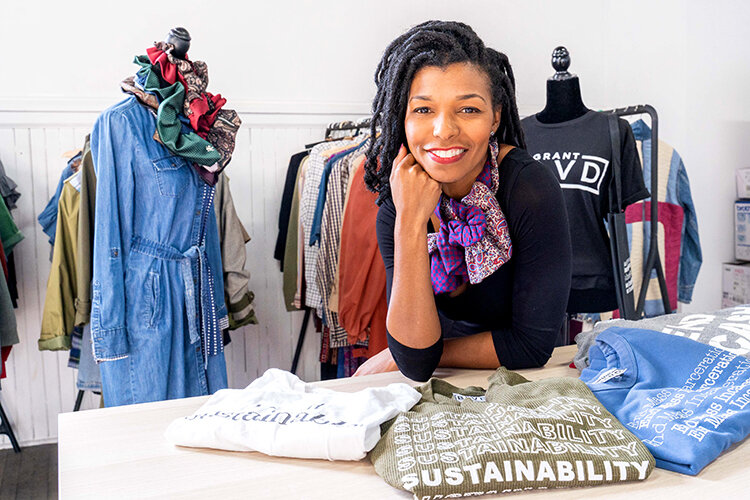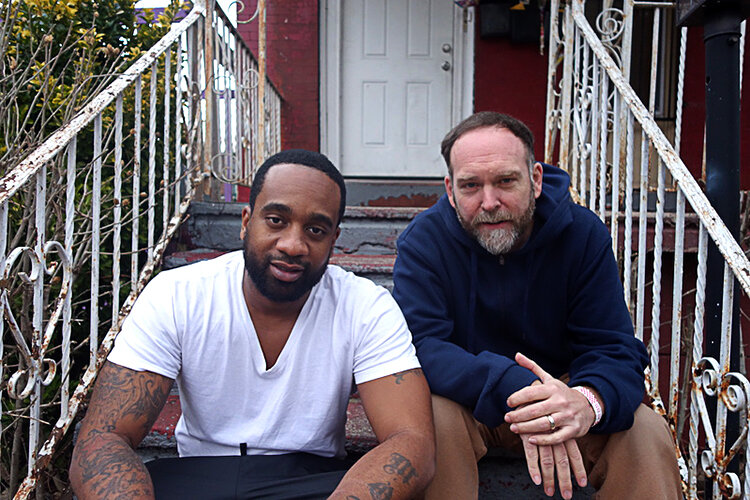Photography by Rachael Warriner
By Claire Marie Porter
The hop flower in the center of Triple Bottom Brewery’s Philly skyline logo has three leaves—one for people, one for planet and one for beer. The image is an homage to the brewery’s take on the original triple bottom line (people, planet and profit) and symbolizes the company’s commitment to social good over dividends.
The brewery opened this past September on Spring Garden Street, after many years of planning. Tess Hart; her husband, Bill Popwell; and brewer Kyle Carney took the time to make sure their business was a little different from a typical craft brewery.
Seeking to add more diversity to the craft beer movement, Triple Bottom Brewery intended to hire women, people of color and those with criminal records who traditionally have been excluded from the economy.
Hart and Popwell were both community developers living in Washington, D.C., when the idea of a more inclusive brewery came to them. They were always struck by the way bars brought people together and saw them as the centers of communities, says Hart.
Bars were places “where people went looking for a story, not just a drink,” she says.
Photography by Rachael Warriner
Bars and breweries create a perfect environment for people to connect, to show natural curiosity in one another’s lives and to practice open-mindedness, she continues. Hart wanted the brewery to feel like coming home.
“We also noticed that the vast majority of breweries we were going to were not inclusive,” she says, referring to how the craft brewing industry is dominated by white men.
According to data collected by the Brewer’s Association, the majority of U.S. breweries have male owners, and 88 percent of all brewery owners are white.
“[The] traditional customer base for craft beer isn’t very diverse,” she adds.
She and Popwell started thinking about how they could create a different kind of brewery about five years ago. They knew that inclusivity would be something that required intention and planning. Soon after, they found Kyle Carney, an experienced brewer.
“As much as we were driven by a social mission,” says Hart, “our beer had to be great.”
The team of three began workshopping their vision for the brewery. They knew they wanted it to be a Fair Chance business and an example of what an employer can be for returning citizens.
Specifically, the business doesn’t see criminal records as a barrier. In fact, they seek out people who have them.
Photography by Rachael Warriner
“I don’t care how many chances you’ve had, at this point, when you’re ready to work, this is what’s fair,” she says.
The brewery opened with 13 new employees, a third of which the company employed through their neighborhood foundation and nonprofit partners. Some of the partners include Project Home, a nonprofit that empowers individuals to break the cycle of poverty and homelessness, Mural Arts Philadelphia and the Youth Sentencing & Reentry Project, which works to keep children and youth out of adult prisons and bring home adults who were sentenced to life in prison as children.
“Our vision is that everyone in every community should have the opportunity to create something great,” says Hart.
And the first few months of the fledgling business have exceeded expectations, she says.
“Our team is 50 percent women, 50 percent people of color and looks different than any other brewery around,” she says.
The brewery is also committed to sustainability. All of their electricity is from wind power that comes primarily from Pennsylvania.
They have a large trash room for sorting waste, in an effort to divert as much as possible from the landfill. Their spent grain from brewing is sent to a local farm, where it’s then used as cow feed.
The brewery tries to maintain a range of flavors and styles of brews, with an emphasis on accessibility from a taste perspective. They want the customer to feel at home and comfortable, says Hart. So the beers span from light lagers to stouts, all with Philly namesakes.
One of the 10 they currently have on tap is an IPA called The Training Montage, an homage to the Rocky films. Another is a light lager called Sunny, “because It’s Always Sunny in Philadelphia,” says Hart. The Terminal foreign extra stout is named after the Reading Terminal Market, and is their richest, darkest beer.
The brewery has a small kitchen and a simple menu that features food from Philly artisans, like Di Bruno Brothers cheese and charcuterie, and Stargazy, a British pie shop in South Philly, whose steak-and-stout pie is made using the Terminal.
Hart is originally from Philadelphia, and she saw a space to be filled in her hometown. With one of the fastest-growing millennial populations, and simultaneously one of the highest poverty rates in the country, Philly is a city that could benefit from a bridge.
“Our business was really speaking to both of those populations,” she says, hoping that when people walk through the doors at Triple Bottom Brewery, “the chasm between those two communities could disappear—at least for a little while.”


